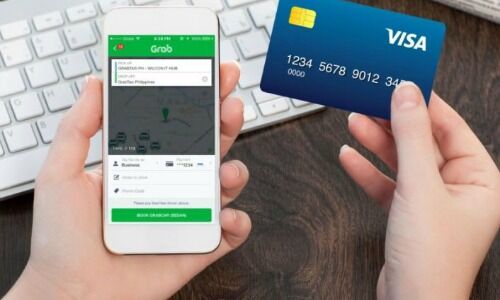Banks Shave Rewards Through GrabPay Top-Ups
More and more banks in Singapore are stopping credit card rewards for users when they top up Grab's mobile wallet, GrabPay. The move reflects banks' unwillingness to fund the growth of third-party mobile wallets indirectly, as they begin to compete in the same space as them.
DBS, UOB, OCBC, and Bank of China are amongst banks that have recently cut rewards when users top up their GrabPay. Since October last year, all OCBC Mastercard credit cards no longer issue rebates or rewards for top-ups to the GrabPay wallet.
On 13 February, UOB updated its terms and conditions for its UOB One credit card to say that Grab mobile wallet top-ups will be excluded from the awarding of cash rebates from March 16 onwards. Other cards that have removed rewards on GrabPay top-ups include the DBS Woman's World Card, the UOB PRVI Miles Card, Amex, Mastercard, and Bank of China's BOC Elite Miles World Mastercard.
Longer Time In Using Points
Consumers have previously benefitted by getting rewards and rebates just by topping up their Grab mobile wallets using credit cards. For users, GrabPay's attractiveness lies in not having to spend all the stored value in the mobile wallet in the same month as GrabPay.
«If you directly use your credit card to pay, you would need to be mindful to use it within a given window in order to earn the rebates,» said one anonymous user, who was quoted in «Business Times» (behind paywall)
Not All Top-Ups Excluded Yet
To be sure, not all GrabPay top-up transactions were actively excluded by the banks, said ∫, founder of «The Milelion», a website which discusses ways to maximize rewards. Some were due to a change in merchant category code (MCC), a string of numbers used by payment networks to identify the type of transactions on credit and debit cards.
Rebates and rewards are typically awarded based on MCCs. When the MCCs for GrabPay top-ups were changed by Amex and Mastercard in December, a few cards instantly stopped awarding points or cashback for that transaction.
But Banks Are Becoming Cautious
The move by banks to exclude top-ups of mobile wallets such as GrabPay from rebates is not a new practice within the space. Mobile wallets such as Singtel Dash and YouTrip have also gotten the same treatment. This is because rebates and rewards are usually funded by the bank, and sometimes co-funded by merchants whom they partner.
Hence, it does not work in the banks' favor to give bonus points for GrabPay top-ups if users are using their GrabPay Cards instead of credit cards for daily spending to maximize rewards. This would mean that the transaction data lies with Grab and not the banks, added Wong. Moreover, Grab and Singtel have jointly submitted a bid for Singapore's digital bank license last year.
Grab's Move
In December last year, Grab launched the GrabPay Card - which is linked to the balance in the GrabPay wallet - boosting GrabPay's attractiveness by allowing users to pay a vastly wider pool of over 50 million merchants globally that accept Mastercard.
«Previously, Grab transactions were mostly limited to either in-app purchases or physical locations where QR codes are accepted. The GrabPay Card allows Grab to capture data from nearly any retail transaction offline or online,» said Zennon Kapron, director of fintech consulting firm Kapronasia. A surge in GrabPay usage provides the fillip for Grab's super app strategy, which relies on having access to troves of data on consumer transactions.



























